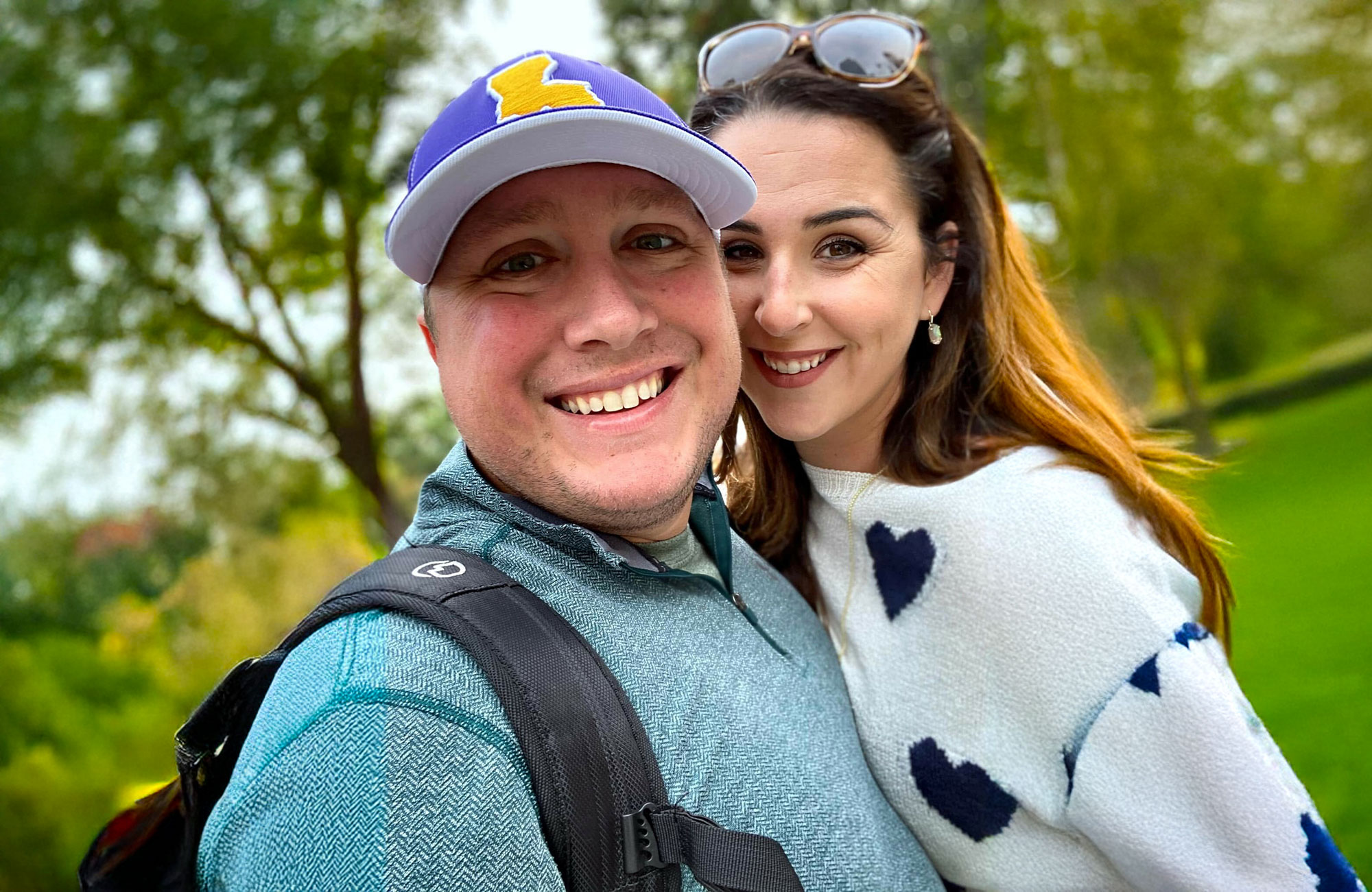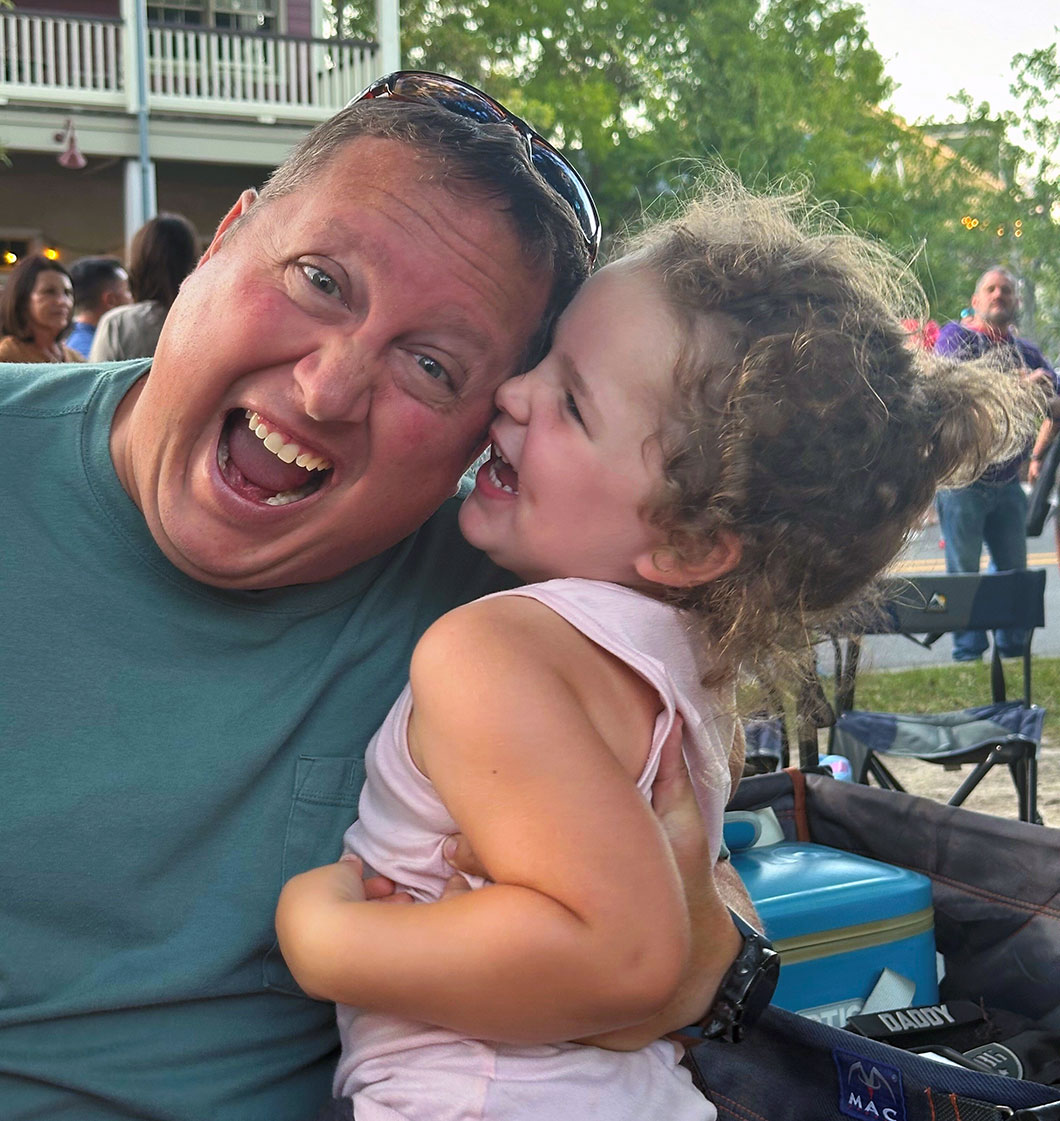Care Close to Home: Brian’s Push for an NCI-Designated Cancer Center in Louisiana

Brian never imagined he’d have to leave his home state of Louisiana to fight for his life. When he was diagnosed with lymphoma, he put his trust in his local oncologist, Dr. Christopher McCanless, in Baton Rouge. But as his condition progressed, Dr. McCanless had a difficult conversation with him — not to say there were no options left, but that the options he needed weren’t available in Louisiana. He urged Brian to reach out to MD Anderson in Texas, an NCI-designated cancer center where the likelihood of finding a successful treatment was much higher.
Dr. McCanless was right. The treatments worked, and Brian is deeply grateful for the care that has saved his life. But being far from home — away from his family and support system — was a challenging part of his journey. Now, he’s a passionate advocate for bringing an NCI-designated cancer center to Louisiana, so that patients like him don’t have to leave their communities to access the best possible cancer care.
How a Cancer Diagnosis Led Brian to Texas
At the young age of 29, Brian had a nagging cough. This cough led to X-rays, a biopsy, and a diagnosis of stage 3 classical Hodgkin lymphoma, a cancer in the lymph system (part of the immune system).
“I had enlarged lymph nodes due to the Hodgkins that were pressing on areas in my throat, triggering the cough,” explains Brian.
Brian lives in Lafayette, and he started treatment close to home, in Baton Rouge. “My amazing oncologist, Dr. Christopher McCanless, started me on ‘ABVD,’ a standard treatment for Hodgkin lymphoma at the time,” he says. ABVD is a chemotherapy combination to treat Hodgkin lymphoma, named for the medications included in the treatment.
When this treatment didn’t work, Dr. McCanless didn’t give up hope – and neither did Brian. However, this meant traveling away from Louisiana.
“There were options available for my disease. However, those options were not in his clinic,” explains Brian. “He suggested I contact MD Anderson. As an NCI-designated cancer center, the likelihood they would be able to help me was high. He was right.”
“The 4-hour drive to MD Anderson made sense, and they shared Dr. McCanless’ optimistic outlook on my treatment. Coupled with the clinical trial options, it was a no-brainer to drive west.”
Clinical Trials and Lifesaving Care
Brian is no stranger to clinical research, including clinical trials. As the Director of Tracking & Evaluation at Pennington Biomedical Research Center, clinical trials are just one of his many responsibilities.
“I work on several projects, including clinical trials, but my main responsibility is with the Louisiana Clinical and Translational Science (LA CaTS) Center. The LA CaTS Center’s focus is to transform the clinical and translational research efforts of our region towards a cohesive, mutually supportive enterprise for clinical and translational research,” says Brian.
One of Brian’s colleagues went to residency with one of the top doctors in the Lymphoma & Myeloma Department at MD Anderson, Dr. Fredrick Hagemeister. When Dr. Hagemeister suggested a clinical trial as the first step in his treatment, it was an easy decision for Brian.
"For me, it was easy because we had exhausted the standard. If I wanted to continue fighting this thing, I had to [enroll in a clinical trial],” he says. “Clinical trials are necessary because they're the next piece, that next step in treatment and drugs."
Brian’s first major treatment, an autologous stem cell transplant in 2013-2014, required weeks in the hospital and months in Houston. "I am very lucky to have parents who were provided very flexible working arrangements and an extremely generous cousin who graciously offered me space at her and her husband’s house,” he says. Still, being away from home was incredibly difficult.
When the transplant failed, Brian turned to an immunotherapy clinical trial in 2015-2016. "Because it was a clinical trial, I was unable to have the drug administered locally. For years, my family and I drove every other week to MD Anderson from Baton Rouge,” Brian recalls. Only after FDA approval could his doctor in Baton Rouge administer it, offering more time at home.
In 2021, just a month after his daughter was born, Brian traveled again to Houston for a clinical trial involving CAR-T (a type of immunotherapy), spending another month away. While grateful for the care that saved his life, it was challenging to be away from his newborn daughter and recovering wife.
“I consider myself extremely lucky to have family, friends, colleagues, and organizations that supported me during my ongoing journey. Accessing the treatments I needed four hours away was an extremely challenging endeavor,” Brian says.

The Fight for an NCI-Designated Cancer Center in Louisiana
Despite the challenges, both logistical and emotional, Brian remains grateful for the care that has kept him alive. He knows that traveling for treatment is a necessary reality for many cancer patients, and he knows firsthand how difficult it can be.
Despite the travel requirements, “The logistic and life alternatives made the decision to go to MD Anderson the necessary choice. I considered MD Anderson the ‘easier’ access to the care I needed,” he says.
Today, Brian continues to make the trip to Houston every 4 to 6 months for scans and consultations. But his experience has fueled his passion for bringing an NCI-designated cancer center to Louisiana so that future patients don’t have to face the same difficult choices he did. What's more, NCI designation would promote even more evidence-based research in cancer prevention and treatment.
“I have no doubt in my mind that I would have sought treatment from a Louisiana-based NCI-designated cancer center,” he says. “I personally know friends and family who chose not to seek care at MD Anderson because it was too far. Whether or not MD Anderson would have changed their outcomes, who knows. But having access to more treatment options is something they need.”
At LSU LCMC Health Cancer Center, we’re on a journey to join the group of NCI-designated cancer centers in the US supported by the National Cancer Institute. Read more about what NCI designation means and our commitment to join this prestigious group of cancer centers.
